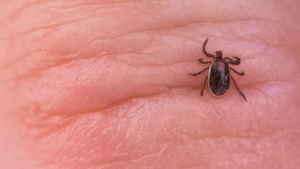Dengue fever, a viral infection transmitted by the Aedes aegypti mosquito, poses a significant public health challenge in India. The nation accounts for a substantial portion of the estimated 100–400 million global infections annually. With the peak season coinciding with the monsoons, the imminent completion of Phase 3 trials for India’s first dengue vaccine offers a beacon of hope.

Dengue fever, spread by the Aedes mosquitoes, manifests with symptoms ranging from high fever and severe headaches to debilitating joint and muscle pain. In severe instances, a perilous drop in blood platelet count can occur, leading to bleeding, organ failure, and even death. Children and the elderly are particularly vulnerable to the most severe outcomes of this infection.
Developing a safe and effective dengue vaccine has been a long-standing challenge for scientists. The existence of four distinct dengue virus serotypes necessitates a vaccine capable of providing broad protection. While some vaccines developed internationally have shown promise, their widespread adoption remains limited.
The Serum Institute of India (SII) is at the forefront of developing India’s first dengue vaccine, named “TetraVax-DV.” This vaccine is engineered to defend against all four dengue virus types. Employing a strategy similar to other vaccines, TetraVax-DV utilizes a weakened form of the virus to stimulate the body's immune system, enabling it to effectively combat dengue. The crucial advantage is that, as it is not a live virus, it cannot cause the disease itself.
Key features of the TetraVax-DV vaccine:
Vaccine approval hinges on successful completion of rigorous testing phases:
Phase 3 is paramount, demonstrating the vaccine's real-world effectiveness in preventing dengue within communities.
Phase 3 trials for India’s dengue vaccine commenced in 2023, spanning over 20 sites across diverse urban and rural landscapes. With enrollment nearing completion, the trial aims to encompass over 10,000 volunteers, including both children and adults from various backgrounds. Early indications suggest promising outcomes.

The subsequent stages involve:
Given India's high dengue burden, a safe and effective vaccine holds immense promise in:
While the vaccine development progresses, preventive measures remain crucial, including protection against mosquito bites through the use of repellents and appropriate clothing, as well as eliminating mosquito breeding grounds by covering drains and removing stagnant water sources.
Information from The Indian Council of Medical Research (ICMR) and Panacea Biotec
Newer articles
Older articles
 Vijay Officially Named TVK's Chief Minister Hopeful for Tamil Nadu's 2026 Election
Vijay Officially Named TVK's Chief Minister Hopeful for Tamil Nadu's 2026 Election
 RJ Mahvash Prioritizes Work Over Buzz, Addresses Link-Up Speculation
RJ Mahvash Prioritizes Work Over Buzz, Addresses Link-Up Speculation
 UNESCO's World Heritage Wonders: Unveiling 10 Iconic Sites, From Petra to the Pyramids
UNESCO's World Heritage Wonders: Unveiling 10 Iconic Sites, From Petra to the Pyramids
 JPG to PDF: A Comprehensive Guide for Graphic Designers & Professionals
JPG to PDF: A Comprehensive Guide for Graphic Designers & Professionals
 iQoo Z9 Turbo: Rumored Specs Emerge – Snapdragon 8s Gen 3, 6000mAh Battery Highlighted
iQoo Z9 Turbo: Rumored Specs Emerge – Snapdragon 8s Gen 3, 6000mAh Battery Highlighted
 Shadman Islam Defends Bangladesh Batters After Day 1 Struggles Against Sri Lanka
Shadman Islam Defends Bangladesh Batters After Day 1 Struggles Against Sri Lanka
 England's Bold Claim: Could They Have Chased Down 450 Against India?
England's Bold Claim: Could They Have Chased Down 450 Against India?
 5 Often-Missed Warning Signs of Bladder Cancer You Need to Know
5 Often-Missed Warning Signs of Bladder Cancer You Need to Know
 KL Rahul Puts Country First, Prioritizes England Tests Over Newborn Child
KL Rahul Puts Country First, Prioritizes England Tests Over Newborn Child
 Tick Bite Paralyzes Fitness Influencer: A Wake-Up Call for Outdoor Enthusiasts
Tick Bite Paralyzes Fitness Influencer: A Wake-Up Call for Outdoor Enthusiasts